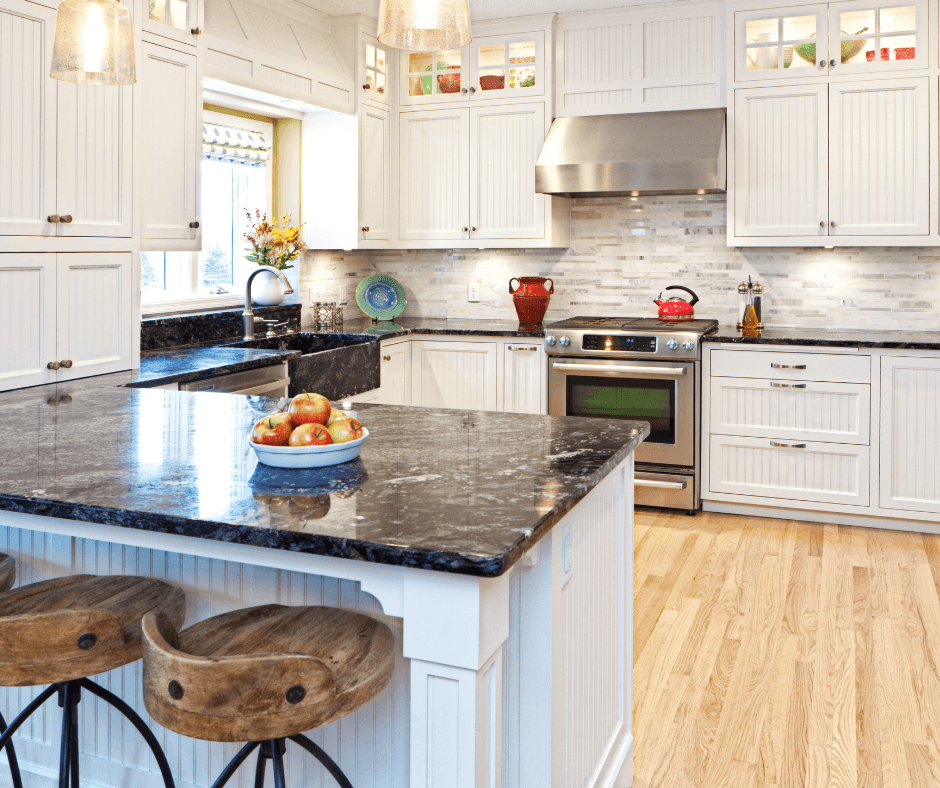Oct 22, 2024

Remodeling your kitchen can be both thrilling and daunting. One of the most pivotal elements of this process is electrical planning. With the right electrical setup, you ensure not just safety, but also a functional and inviting cooking space. A well-designed electrical plan is a key ingredient in a successful kitchen remodel. Let’s dive into the crucial electrical considerations you need to focus on during your project.
Understanding Current Electrical Systems
Before you start any remodeling work, it’s crucial to understand your existing electrical systems. This includes knowing your home's electrical capacity and the age of your wiring.
For example, if your home was built over 30 years ago, it likely has a 100-amp service, which may not support modern appliances. An inspection by a qualified electrician can uncover potential concerns such as frayed wires or overloaded circuits, which could affect your remodel.
By assessing your existing wiring, you can determine if it can safely support new appliances. If not, upgrading to a 200-amp service may be wise, allowing you to add high-demand appliances later without worry.
Planning Electrical Outlets
Strategically placing electrical outlets is a cornerstone of effective kitchen remodeling.
The National Electrical Code specifies several standards for outlet placement, including:
At least two receptacles in each countertop space that is 12 inches or wider. For instance, if you have a 6-foot countertop, that means you should install at least four outlets.
Outlets must be spaced no more than 4 feet apart. This prevents dead zones where you cannot plug in appliances.
GFCI (Ground Fault Circuit Interrupter) outlets must be installed within 6 feet of sinks to mitigate the risk of electric shock.
By planning for an abundance of outlets, you'll avoid the clutter and hazards associated with extension cords. A pro tip is to include outlets inside cabinets for small appliances, keeping your counter clear and tidy.
Lighting Layout and Design
Good lighting can dramatically change your kitchen's atmosphere and functionality. When designing your lighting layout, consider the following types of lighting:
Task Lighting: Focused lighting is crucial for working areas like cooking or food prep. Consider under-cabinet lights, which can provide direct illumination for tasks.
Ambient Lighting: This is the general lighting that fills the entire space. Ceiling fixtures should be bright enough for overall visibility. For instance, using LED fixtures can save energy and last up to 25,000 hours.
Accent Lighting: This adds flair to your kitchen. Use pendant lights over an island or LED strips along shelves for a modern touch.
Integrating dimmers can enhance your kitchen's versatility, enabling you to adjust light levels for different activities or social gatherings.
Appliance Requirements
Your kitchen remodel will likely involve new appliances, each with specific electrical needs.
For example:
Refrigerators generally require a dedicated outlet with a GFCI for safety.
Ovens and ranges often need a 240-volt circuit and may necessitate particular considerations for ventilation and clearance.
Remember, consulting appliance specifications can help you ensure compliance with local codes while preventing overloads in your electrical system. As a pro tip, consider placing the outlets in easy-to-access locations to simplify usage.
Ventilation Considerations
Proper ventilation is vital for maintaining air quality and safety in your kitchen.
High-powered appliances like ranges may require dedicated circuits for exhaust fans or hoods to effectively remove heat and cooking fumes.
Statistically, a well-ventilated kitchen can reduce the occurrence of cooking-related respiratory issues by up to 70%. Therefore, be sure to incorporate electrical considerations for ventilation systems into your remodel plan.
Smart Home Integration
With technology evolving rapidly, integrating smart home systems in your kitchen can offer major convenience and efficiency.
When planning your electrical needs:
Smart Lighting: Control all your kitchen lights from your smartphone or voice assistants, making it easy to set the mood for family dinners.
Smart Appliances: Up-to-date refrigerators, ovens, and dishwashers feature connectivity for remote monitoring and control.
Ensure you discuss the specific electrical requirements of these smart devices with your electrician ahead of time.
Adding Circuits for Future Needs
Your kitchen remodel should not only meet your current needs but also anticipate future changes.
Adding extra circuits now can save you time and money later. If you plan to upgrade appliances or features down the line, having extra circuits in place will ease that transition.
Discuss potential future upgrades with your electrician to ensure your kitchen's electrical infrastructure can accommodate growth.
Safety Considerations
Safety is paramount in any electrical project, particularly in kitchens.
Make sure to:
Install smoke and carbon monoxide detectors that are easily accessible yet away from high-heat or grease zones. Utilize circuit breakers to prevent overloads and ensure that all wiring complies with local codes.
Hiring a licensed electrician is highly recommended for installations and upgrades, as their expertise can substantially enhance safety.
Code Compliance
Staying compliant with local building and electrical codes is not just about legalities; it’s essential for safety as well.
Research local code requirements concerning appliances, wiring, and safety measures. Collaborating with a licensed electrician ensures that your plan meets all codes and standards.
Hiring a Professional
While do-it-yourself projects are appealing, kitchen remodeling often calls for professional expertise.
Hiring a licensed electrician offers peace of mind regarding safety and compliance with codes. Look for someone who specializes in kitchen remodeling. Their experience can significantly impact the success of your project.
Final Thoughts
Electrical aspects play a vital role in any kitchen remodel.
From thoughtfully planning outlets to ensuring proper lighting and adherence to safety codes, careful electrical planning is indispensable.
Investing time and resources into these considerations will not only enhance your kitchen's aesthetic but also ensure it is a well-functioning culinary space for years to come.
Before you start your remodel, evaluate your electrical needs, consult professionals when necessary, and embark on creating a kitchen that seamlessly meets your present and future requirements.
